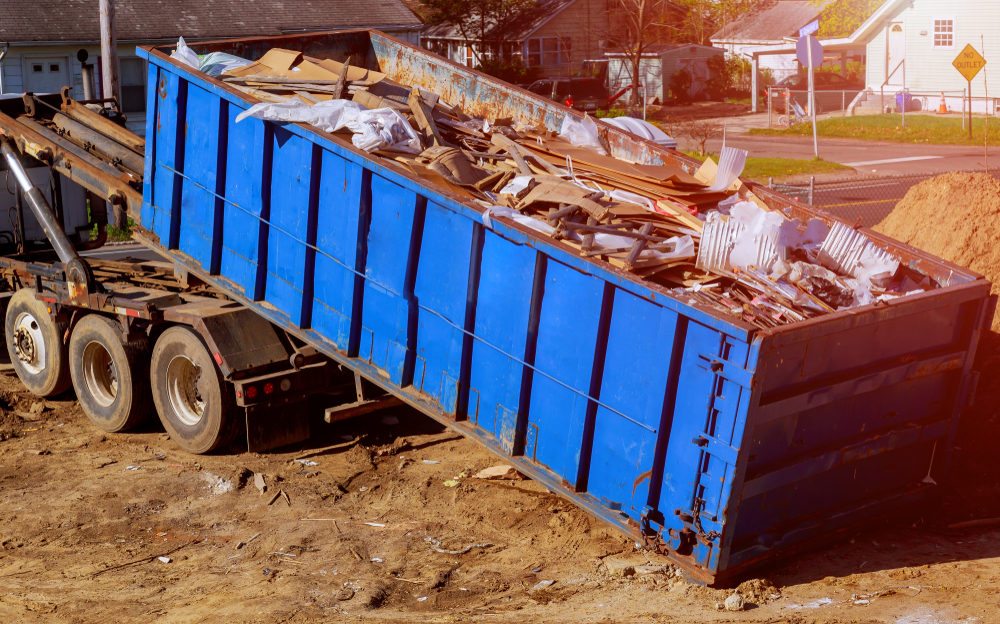Why Construction Sites Need Professional Debris Removal

Construction sites are bustling with activity, and managing the aftermath of such projects can be just as demanding as the construction itself. One crucial aspect that often gets overlooked in the planning stages is the importance of professional debris removal. From maintaining site safety to adhering to regulations, professional debris removal services are essential for a successful construction project. This blog delves into the reasons why construction site debris removal is not just a luxury but a necessity.
The Importance of Construction Site Debris Removal
Ensuring Safety on Site
Safety is paramount on construction sites. Debris, including scraps of wood, metal, and broken glass, poses significant risks to workers. Tripping hazards and sharp objects can lead to serious injuries if not promptly and properly managed. Professional debris removal services ensure that all waste is efficiently cleared, reducing the risk of accidents and ensuring a safer working environment.
Compliance with Regulations
Construction sites are subject to numerous regulations and standards, including those related to waste management. Proper disposal of debris is not only a legal requirement but also helps avoid hefty fines and penalties. Professional debris removal services are well-versed in local regulations and ensure that all waste is disposed of according to legal standards, thus helping contractors stay compliant.
Enhancing Efficiency and Productivity
An organized site is a productive site. When debris is left unmanaged, it can slow down the work process, as workers may need to navigate around piles of waste or search for necessary materials amidst the clutter. Professional debris removal services help keep the site tidy, which enhances overall efficiency and productivity, allowing workers to focus on their tasks without unnecessary interruptions.
Environmental Responsibility
With growing environmental concerns, responsible waste management has become crucial. Construction sites generate a significant amount of waste, and improper disposal can have detrimental effects on the environment. Professional debris removal services prioritize eco-friendly practices, such as recycling and proper waste segregation, minimizing the environmental impact of construction activities.
Benefits of Professional Debris Removal Services
Expertise and Efficiency
Professional debris removal services come with the advantage of expertise and efficiency. These services are equipped with the right tools and trained personnel to handle all types of construction waste, from hazardous materials to bulky debris. Their experience allows them to manage waste removal quickly and effectively, ensuring that the construction site remains in optimal condition.
Cost-Effectiveness
While it might seem like an added expense, professional debris removal can actually be cost-effective in the long run. By preventing accidents, reducing downtime, and ensuring compliance with regulations, these services can save money that might otherwise be spent on medical expenses, fines, or project delays. Additionally, professionals can often negotiate better rates for waste disposal due to their established relationships with disposal facilities.
Time Savings
Time is a valuable commodity on construction sites. Managing debris removal internally can be time-consuming and distract from the main tasks at hand. Professional services streamline the process, allowing construction projects to stay on schedule. Their ability to quickly and efficiently handle debris removal means that projects are less likely to experience delays related to waste management.
Comprehensive Waste Management
Professional debris removal services offer comprehensive waste management solutions, including sorting, recycling, and disposal. They are adept at handling different types of waste, such as hazardous materials, which require special disposal methods. This comprehensive approach ensures that all types of debris are managed correctly, reducing the risk of environmental contamination and promoting sustainability.
Choosing the Right Professional Debris Removal Service
Assessing Experience and Expertise
When selecting a professional debris removal service, it is crucial to assess their experience and expertise. Look for companies with a proven track record in managing construction site debris. Their experience will be evident in their ability to handle various types of waste efficiently and adhere to regulatory requirements.
Checking for Proper Licensing and Insurance
Ensure that the debris removal service you choose is properly licensed and insured. This not only guarantees that they meet industry standards but also provides protection in case of any accidents or damages that may occur during the debris removal process.
Evaluating Customer Reviews and References
Customer reviews and references can provide valuable insights into the reliability and quality of a debris removal service. Look for companies with positive feedback from previous clients, as this indicates their ability to deliver satisfactory results and maintain high standards of service.
Comparing Costs and Services
Different debris removal services offer varying rates and packages. It is essential to compare costs and services to find a provider that offers the best value for your needs. Consider the scope of their services, including any additional benefits such as recycling and waste sorting, to make an informed decision.
Conclusion
Professional debris removal is an integral part of managing construction sites effectively. From ensuring safety and compliance to enhancing efficiency and environmental responsibility, the benefits of professional debris removal services are undeniable. By choosing the right service provider, construction projects can avoid potential pitfalls, adhere to regulations, and achieve a cleaner, safer, and more productive work environment. Investing in professional debris removal not only facilitates smoother project execution but also contributes to overall project success.
